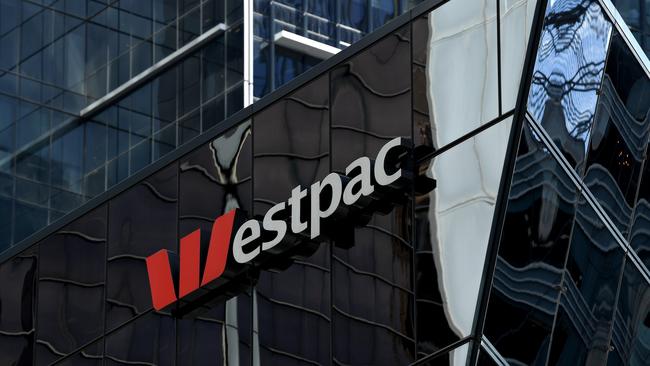Terry MCCrann: A deal is a better bet than a roll of the dice
Banking Royal Commissioner Kenneth Hayne slammed the two main corporate regulators ASIC and APRA in his interim report for doing deals with wayward banks instead of taking them to court, writes Terry McCrann.
Terry McCrann
Don't miss out on the headlines from Terry McCrann. Followed categories will be added to My News.
Banking Royal Commissioner Kenneth Hayne slammed the two main corporate regulators ASIC and APRA in his interim report for doing deals with wayward banks instead of taking them to court.
Well, in the last week we have seen two cases — interestingly and I think entirely coincidentally, both involving Westpac — which rather showed why ASIC and APRA might have preferred the deal-making option.
Simply, because it — mostly — works. Because, simply, brutally, and as I have previously noted, going to court can take years, cost millions of dollars and you — the regulator — might very well end up losing.
WORST ACTS OF GREED FROM ROYAL COMMISSION
GREED, WEAK REGULATORS BEHIND BANK SCANDALS
In non-legal terms, what is probably very obvious to the non-lawyer if not so much to those sautéed in the law and its processes, is that the legal process — right across the board, from minor civil cases to the most heinous criminal — tends to be a crap-shoot.
Outcomes can often have absolutely nothing to do with which party is actually in the right or even what the actual law is. Just take the frequent reality of appeals.

A judge in the first instance says Party A is in the right. On appeal, two out of three judges say, no, Party B is right — while the third sticks with Party A. The High Court finally rules 4-3 that Party B was right after all.
Apart from the fact, in my little example, that five judges ruled the law was X and six ruled that, no, it was non-X; consider what the outcome would have been if it had never been appealed.
The case would have been decided for Party A even though the law (as would have been ultimately decided by the High Court except it never got there) should have found for Party B.
What we saw with one of the Westpac cases was a spectacular contrast between ‘doing a deal’ and ‘doing a Hayne’ — going right through the court process.
ASIC charged all four big banks with rigging the so-called Bank Bill Swap rate (BBSW). Three did a deal.
ANZ and NAB were each fined $10 million, each contributed $20 million to ASIC’s costs, and each donated a further $20 million to, in street lingo, ‘a charity of ASIC’s choice’. CBA got away with smaller sums that added to $25 million in its deal.
The three together paid a $25 million fine and contributed $45 million to ASIC’s costs. If you didn’t know it already QCs and even SCs don’t get out of bed in the morning for sums less than those paid super models.

Westpac — rather than ASIC — refused to deal; and after it went all the way through the court process and Westpac ‘lost’, it got pinged all of just $3.3 million. It will also pay some as yet undetailed part of ASIC’s costs. But there’s no ‘donation’ to a ‘charity of ASIC’s choice’.
Now it gets more complicated. The three ‘dealing’ banks agreed to plead guilty to and only to attempting to act unconscionably (which, to this non-lawyer is a nonsense action).
Westpac in contrast got pinged for actually succeeding in acting unconscionably rather just trying to, but got off with a much lower penalty.
It was also though cleared of, by a court — and this is very important — of being not guilty of market manipulation.
The belief that they had been manipulating the market was what really had driven ASIC’s case against all four of them. But none of them got pinged on that — three because of a deal and Westpac because the case failed.
The comparative outcomes sort of validates the ASIC approach that just maybe the deal-in-the hand is a better bet than a long and uncertain court case.
But then you get to the second Westpac case: ASIC and Westpac did a deal but couldn’t then get it rubber-stamped by the court.
Westpac agreed to plead guilty to the civil charge that it had breached the responsible lending rules by assessing mortgage amounts using a benchmark and not the borrower’s actual spending and the bank and ASIC agreed a $35 million penalty.
On Tuesday Justice Nye Perram said no, as Westpac and ASIC couldn’t agree on the number of breaches.
This followed his observation two months ago — “playing devil’s advocate” — whether the amount had been too big, especially as it had been agreed that Westpac had made an innocent mistake. That as ASIC noted, it was a “good-faith breach which hasn’t caused any loss and damage”.
And as I noted at that time, it was hard to identify any actual victims of Westpac’s behaviour. It either made no difference: borrowers got their loan they would have got anyway. Or they got a loan and got to buy a house they wouldn’t otherwise have.
But of course banks have to “act responsibly”. The Nanny-state demands.
Now Mr Justice Beach had a fascinating throwaway line in the first Westpac case.
Taking the ASIC counsel to task for hyperbolic language, he said: “You’re not in the Royal Commission and you shouldn’t use that sort of inflammatory or exaggerated language.”
Whatever could he have been referring to? Whatever has happened in the RC to so lodge in a judge’s mind that it ‘springs out’ in this way?
NINE PLOUGHS ON — AND DOWN
OH dear. We’ve seen how the board of Worley Parsons very effectively shredded shareholder value with an opportunistic takeover.
But it’s got nothing on the board of the Nine Network. Its move to merge with Fairfax has sliced 38 per cent off the value of Nine and so also off the value of every shareholding.
Barely three months ago Nine shares were at $2.52; yesterday they were $1.575.
As I’ve pointed out, the merger terms work in reverse, dragging down the Nine share price like a Mafia victim swimming with the fishes handcuffed to a block of concrete.
But it’s now even dragging down the Fairfax price — to below 60c compared with 77c back on the ‘big day’.

